POSTED ON 02 Apr 2015
With Jewish Divorce Rates at 30%, New York Orthodoxy Responds
‘Rising From Divorce’ seeks to engage the insular community with concrete methods to ease children’s pain in the aftermath of an all-too-modern problem.
NEW YORK – Coming on the heels of the North American release of “The Get,” an Israeli film about religious divorce in Israel, comes a new video targeted to the Orthodox Jewish community, “Rising from Divorce.” The short film, the first of its kind, stars real people and is designed to educate rather than entertain.
“Rising From Divorce” casts no judgment on a couples’ decision to divorce. It doesn’t address the reasons for divorce or try to prevent it. Rather it seeks to engage the Jewish Orthodox community about the impact it has on parents and children.
“Everything we do is confronting stigma in the community. We’re not dealing with the whys, but the what happens after,” said Derek Saker, from the New York-based OHEL Children’s Home and Family Services, which produced the video.
OHEL decided it was time to address the issue since currently in the United States, about 30 percent of Jewish marriages end in divorce. And as the largest social service organization serving the Jewish Orthodox community and beyond, OHEL felt it was uniquely positioned to offer advice, Saker said.
And so the call went out. Would men and women be willing to share their stories in front of the camera? The answer was a resounding yes, Saker said. Nearly 30 divorcees stepped forward.
“I look at this video as ‘it takes a village,’” said Dr. Hindie Klein, a psychologist and OHEL’s director of clinical projects.
“There are many different aspects on how we can help, on how to give divorcees and children of divorce the emotional support to make a difference. Everybody in the community needs to be highly sensitized,” said Klein.
To that end the video includes interviews with divorcees, rabbis, community leaders, children of divorce and teachers. The organization plans community-wide screenings followed by panel discussions in cities across the US and in Canada.
Rivky Sonnenfeld married at 22, had a baby at 23 and divorced at 25. Fifteen years later, she works full-time and goes to school, all while raising her daughter alone in Flatbush.
Sonnenfeld counts herself as fortunate. Although divorce carries a lot of stigma in the Orthodox community, her parents, who live in Scranton, PA, never questioned her decision. Nevertheless, she felt compelled to tell her story on camera.
“I was very impressed with their vision [OHEL] and what they wanted to do,” Sonnenfeld said. “I just felt if this could open everyone’s eyes to the situation, to what is going on. It’s about moving forward and how the community could better step up.”
Whether it’s inviting a newly divorced man or woman for Shabbat dinner, offering to take a divorcee’s child to synagogue or just listening, there are many ways for people in the community to help, Klein said.
It’s important for educators to be aware of what children of divorce are experiencing, said Rochel Chafetz, a teacher at an all girl’s Jewish Day school in New York City.
“I see a sadness and I’ll ask what’s wrong. ‘My parents are fighting like cats and dogs and they just pull me in,’” Chafetz said in the video. “The kids are not barter material. Do not pull them in.”
Klein said the video is a conversation starter; she hopes it encourages people to seek help during what can be a tumultuous time. The film highlights four areas, the pain of divorce, the consequence of a high conflict divorce, the intelligent divorce and lastly, the role of the rabbis, educators and the community at large.
Alan Cohen, the only male divorcee appearing in the video, decided to participate out of respect for OHEL and because “it has the potential to help other people.”
“I could have used some advice when I got divorced,” Cohen said “Not necessarily legal advice or financial advice, just overall practical advice for what to do and what can happen.”
